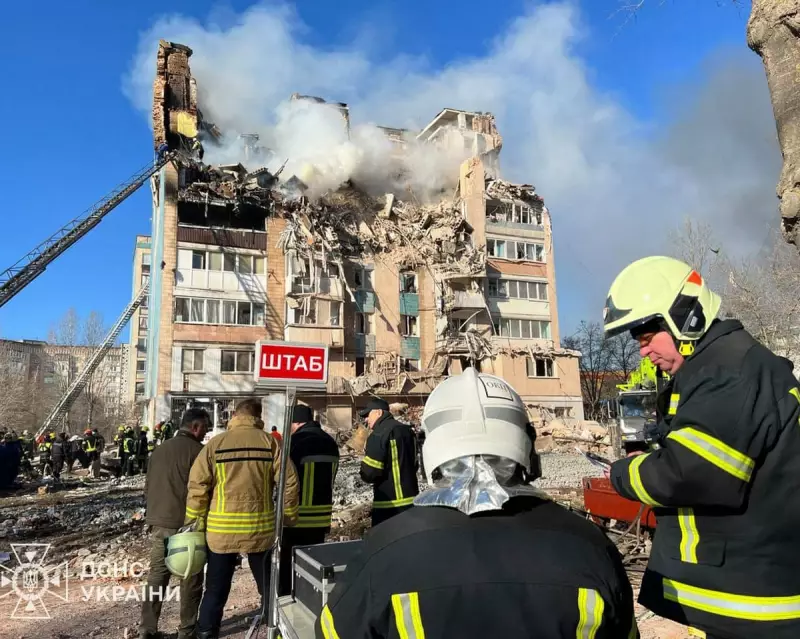
Secret US-Russia Talks Produce Controversial Draft Peace Plan
American and Russian officials have reportedly drafted a contentious new plan to end the war in Ukraine, a development that emerged simultaneously with a devastating Russian assault on the western Ukrainian city of Ternopil. The proposed agreement, if enacted, would compel Kyiv to make significant territorial concessions and dramatically reduce the size of its armed forces.
Draconian Terms and Deadly Coincidence
The draft plan was developed through an unofficial backchannel involving Donald Trump’s envoy, Steve Witkoff, and Kremlin adviser Kirill Dmitriev. This 28-point proposal would impose severe restrictions on Ukraine, effectively granting Russia substantial control over the nation's military capacity and political sovereignty. Many observers in Kyiv are likely to view the terms as a form of surrender.
Key conditions within the draft include Ukraine ceding territory it currently holds in the eastern part of the country and halving its military personnel. Other stipulations involve limiting US military assistance and restricting the categories of weaponry available to Ukrainian forces. These are conditions that President Volodymyr Zelenskyy has historically rejected as non-starters.
The revelation of these clandestine negotiations came on a day marked by tragedy. Russian drone and missile strikes killed at least 25 people in Ternopil, with 73 others injured, including 15 children. The attack targeted residential buildings in the early hours of the morning, trapping residents in their homes as fires raged.
Diplomatic Moves Amid Escalating Violence
As news of the draft plan broke, President Zelenskyy was meeting with Turkish President Tayyip Erdoğan in an effort to revitalise peace negotiations and secure what he termed a "just peace" for Ukraine. Zelenskyy used the occasion to urge Western allies to intensify pressure on Moscow, specifically calling for enhanced air-defence capabilities.
"Every brazen attack against ordinary life shows that the pressure on Russia is insufficient," Zelenskyy stated on social media platform X. "Effective sanctions and assistance to Ukraine can change this."
The timing of the leaked draft and the severe attack on western Ukraine highlights the complex and volatile state of the conflict. While the Kremlin's spokesman, Dmitry Peskov, denied any significant progress in peace talks, and the Russian foreign ministry claimed unawareness of any new US proposal, the reported discussions between Witkoff and Dmitriev have raised considerable concern among Ukraine's European allies, who fear the plan disproportionately favours Russian interests.
This diplomatic activity occurs as Ukrainian forces face battlefield challenges, including Russian advances near Pokrovsk, and as Zelenskyy contends with a domestic political crisis stemming from a corruption scandal in the energy sector. The combination of military pressure and a potentially unfavourable peace framework places the Ukrainian government in an increasingly precarious position as the war approaches its fourth year.





